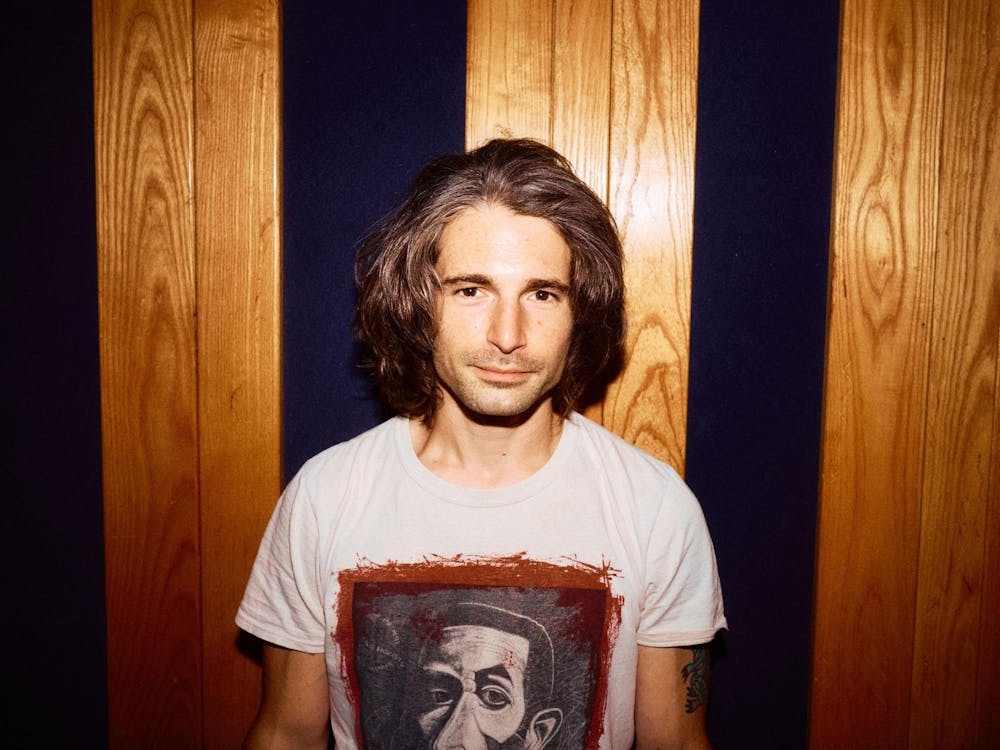Hailie Jade Mathers is better protected than the president, goes one joke. Say her name three times, and Eminem will appear, goes another.
Namedropping Eminem’s daughter in unsavory ways is a rite of passage for any rapper looking to get under his skin — infamous examples include Everlast and Ja Rule in the early 2000s. In each case, Eminem fired back with a spate of diss tracks that scorched his rival and everyone in their circle, thereby solidifying his reputation as a battle rapper not to be trifled with.
And so it was with Machine Gun Kelly, who made the unfortunate mistake of tweeting about then-16-year-old Hailie’s looks in 2012. The incident kicked off tensions between the two that largely played out behind the scenes, until Eminem finally unleashed a full-blown tirade against the Cleveland rapper on the surprise 2018 album, “Kamikaze.”
The album made waves for firing scattershots at music critics, former president Donald Trump, mumble rap at large and at least 10 rappers by name — notably, Machine Gun Kelly, Ja Rule and Tyler, The Creator. But more than anyone else, all eyes were on MGK, who suddenly held the double-edged sword he had long sought — a highly publicized, deeply personal feud with one of hip-hop’s greats.
Sure enough, MGK went all in on a spirited, five-minute diss track titled “Rap Devil,” decisively crossing the Rubicon. In the weeks between MGK’s track and Eminem’s anticipated response, tens of millions of hip-hop listeners tuned in to witness the first, real-time Eminem beef of the modern streaming era, with two rappers’ careers hanging in the balance.
The name “Rap Devil” is itself a play on Eminem’s hit “Rap God,” effectively positioning MGK as a protege aiming to dislodge his former idol. In fact, the track is rife with references to Eminem’s lengthy discography, knocking the rapper for “stan[ning] himself” and urging him to “go back to Recovery” — tapping into a growing perception of Eminem as an antique within contemporary rap.
Throughout the track, MGK leans heavy into low-hanging fruit, dedicating significant portions to painting Eminem as a bitter geezer unable to recapture his glory days. The taunts vary between zingers — e.g. “Knees weak of old age, The Real Slim Shady can't stand up” — or duds, such as the lines mocking Em’s dated fashion sense. But they scarcely present a new or interesting thought about Eminem, instead recycling social media chatter that was already in vogue.
Instead, the illuminating details of “Rap Devil” emerge in verse two, where MGK pulls the curtains on the industry politics driving the conflict. By Kelly’s account, Eminem’s response to his controversial tweet was to “blackball” the young rapper by pressuring radio stations and labels to drop his music. The allegations sully the Detroit-born Eminem’s reputation as the voice of the American underclass, painting him as vindictive against up-and-coming talents looking to make a name for themselves.
The involved backstory motivates the breathlessness with which the rapper bolts through four verses, a repeated hook and even a sing-songy bridge — an unusual, perhaps misguided pop-oriented touch to a diss track. There’s even an accompanying music video, in which a shirtless, fully-tatted MGK brandishes a shovel, vigorously pantomimes his lyrics and spits out cereal. The overall impression depends on how seriously one takes a skinny white boy’s version of gangsta rapper bravado, but his zeal is undeniable.
MGK’s animated delivery and noir music video gel well with the “Rap Devil” instrumental, produced — in a poetic twist — by “Kamikaze” co-producer Ronny J. The beat is an exemplar of simple-yet-addictive composition, fusing satisfying snare hits, a guitar harboring a subtle Western twang and a sinister-sounding 808 bass. The result is a dramatic musical score that somehow sounds bullish and brooding at once, a fitting backdrop to the David and Goliath narrative MGK invokes.
Keep in mind, this was all done just three days after Eminem dropped “Kamikaze.” With “Rap Devil,” MGK seems to have understood the spectacle of the moment and capitalized on it, despite also exposing his limits as a technical rapper.
The impact of the song was and remains complicated. Upon release, the hip-hop community reveled in the explosive drama and offered qualified praise for “Rap Devil,” commending MGK for his panache, if not his lyricism. Others prophesied MGK’s impending doom, comparing the situation to Ja Rule’s fateful mistake — a prediction many felt was vindicated following Eminem’s blistering response and MGK’s poor future sales. The beef is still being dissected by rap fans, with a high-profile “4 Years Later” retrospective video on the subject published Sept. 14 of this year.
In spite of the messy debate, MGK’s stint can be appreciated as a punch considerably above his weight — not exactly the knockout blow it was intended as, but unusually robust amid the still-growing catalog of failed anti-Eminem takedowns.
As for himself, Machine Gun Kelly seems at peace with his decision, indicated by his 2020 interview with Howard Stern.
“I said what I said, and respect the fight — that's it,” Kelly said.
“The Butterfly Effect” is a column by Kartik Chugh that explores the significance of selected hip-hop releases from a cultural and musical lens.







